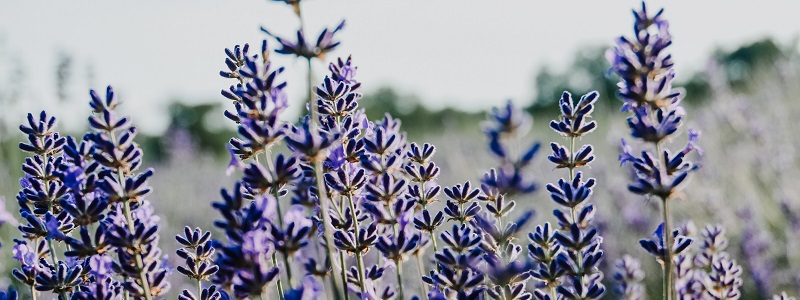Ever walk by a patch of lavender and are stopped in your tracks with the aroma?
Do you enjoy cold mint tea in the summer? Or hot peppermint tea when your tummy is upset?
Have you enjoyed rosemary in a meal, perhaps on a roast, or in Thanksgiving stuffing?
Have you noticed that burning plants for their aroma are a big part of ceremony, from Frankincense in the Catholic Church to Sage and Cedar in Native American Ceremonies?
The Smell of the Forest
I remember that when I lived in the open desert, where I could count the trees I could see from my front door on one hand. I would drive to the pine forest only a half-hour away, and camp there overnight. I was rejuvenated by the smell of the pines and the rustling of the wind through their needles soothed me to sleep.
It’s not just me. The Japanese have a practice called Forest Bathing. They go into the forest and inhale deeply, taking in all the scents. It calms and relaxes them, and in the long run helps the brain functions of decision-making and focus.
We connect to our environment when we inhale the smell of plants.
We turn to aromatic plants when we participate in rituals and ceremonies. We use aromatic herbs to spice up our meals, making them more delicious. We may even use a few aromatic herbs in everyday life such as to relive an upset tummy or to induce sweating when we have a fever.
Plants not only smell nice, also regulate us
These aromatic herbs all have the property of affecting our mental health and regulating internal coherence. They do that in several ways.
When we inhale the aroma of a plant, the signals from the sense of smell go directly to the brain. These signals go by way of nerves and stimulate the part of the brain which regulates the internal organs and manages stress and our response to it! The more that this aromatic smell stimulates this part of the brain, it enhances the ability to focus and it send signals to regulate hormones. It also affects our creation of memories and emotions.
When we inhale these herbs, the volatile oils enter our lungs, and from there get absorbed into the blood. The effect internally is to relax the tension around our internal organs, letting us know that everything will be alright.
What these internal organs of the lungs, uterus, stomach, intestines, heart and brain have in common is that they are touched by the vagus nerve. This nerve comes from the brain, but wanders throughout the body and functions to regulate our heart, lungs and gut. Heart Rate Variability (HRV) is a key marker of the activity of vagus nerve, and it is strongly affected by aromatic plants. There is lots of research on the effect of herbs on HRV.
Which plants?
Now, let’s get practical. The mint family accounts for a large part of the aromatic herbs. Let’s look at those now.
Lavender is calming, and you may even have used it to help you get to sleep. It can calm acute and chronic anxiety, and improve the performance of night-shift workers such as nurses. The aromatic flowers do the trick, as well, lavender comes as an essential oil.
Rosemary is great in soups and on roasts. You probably have heard of the combination of parsley, sage, rosemary and thyme! It can also be used to reduce pain, inflammation and improve circulation as well as enhance memory. Try holding rosemary and smelling it the next time you need to study for a test!
Why do you think they put peppermint as a flavoring in toothpaste, gum and candy? It is invigorating and they hope you will associate the product with pep and vigor so that you buy it again. Peppermint can focus you and help you be more alert. In addition, it has the seeming opposite action of relaxing the muscles of the gut. Drinking hot peppermint tea can calm an upset tummy.
Finally, a mint sacred in India is Tulsi, or Holy Basil. It is used there for calming the spirit, endless vitality and long life. No wonder it is revered! I have it in my bathroom, and it calms and uplifts me whenever I enter and smell it.
Traditional cuisines around the world use aromatic herbs throughout the meal. Since taste is partly a function of smell, you can enjoy the meal with its appetizing aroma. In addition, when these herbs are eaten, they relax you so that you can digest, with the side benefit of dispelling flatulence.
How do these plants influence us?
When we inhale the aroma of plants, we connect to our surroundings. It stimulates deep centers in our brain resulting in more focus, relaxation and efficiency.
Stress seems to melt away.
The rhythms of our body start to synchronize so that we ease into the flow of life. We can be more present in the moment, and feel more harmonious when the weight of the modern world is on us.
Do you need any other reason to have aromatic plants in your life?
Your Challenge
Go ahead, plant rosemary, peppermint and lavender in your yard, or lacking a yard, put them in pots in a sunny window.
Grab a sprig when you are stressed, and smell it. Roll it in your fingers and let the aroma emerge. You will know which one to grab!
Put herbs like these in your meals. Yum! Brew some cold peppermint tea and drink it down in the summer.
How will you use aromatic plants?





